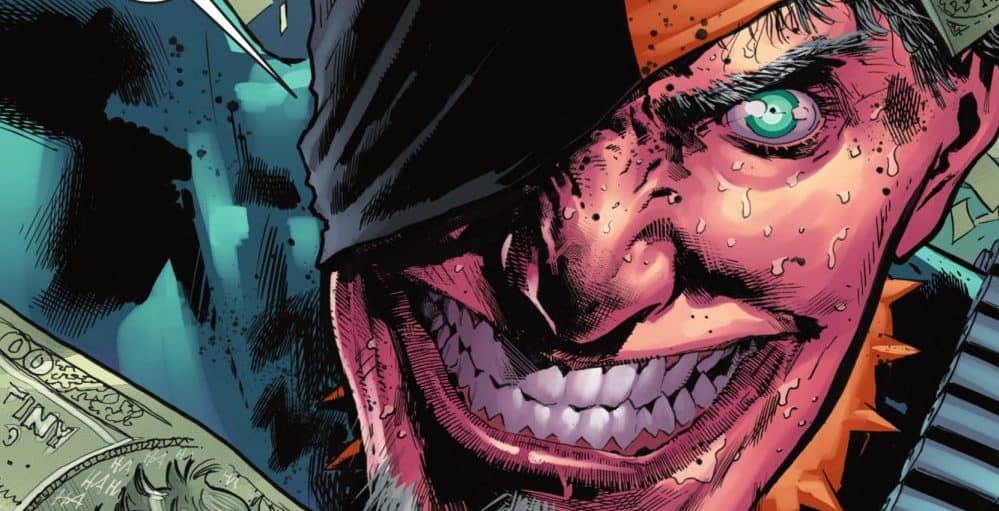Do you ever question how a film entered your life? Most of the time the answer is pretty easy. You bought a ticket and watched it on opening weekend. Or maybe you were battling insomnia and stumbled upon it while watching HBO. Perhaps it was part of a film appreciation course. But eventually the answer becomes clear especially if it’s a Hollywood blockbuster or an art house dandy. When the review copy of Decoder showed up in the mail, I was excited to get a second chance to see the film since I remembered seeing it in the late ’80s. And then I pondered how and if I’d seen the whole movie. Within the crowd I was hanging with during this time a movie that combined the talents of Psychic TV, Einstürzende Neubauten and William S. Burroughs was desirable viewing. But how did this German language film on VHS end up in the VCR one evening? It couldn’t have been an import since no one owned a PAL player. Was it rented from one of the more culty rental shops in the Triangle like Dave Videorama? Was it a bootleg? How did this film about a conspiracy conspire into my life?
FM (FM Einheit from the band Einstürzende Neubauten) is into reworking basic sounds into larger musical pieces. He’s constantly recording things as he roams around Hamburg, West Germany and heads back to his home studio to mix them into a larger piece. He has a cool artsy girlfriend (Christiane F.‘s Christiane Felscherinow) that works at the local peep show and raises frogs at her apartment. One day he wanders into an H Burger with his tape recorder rolling and notices how the people are so eager to chow down on hamburgers. When he gets back and begins messing with the audio, he discovers something extra sinister about the happy peaceful elevator music. He goes to a local used electronics shop run by William S. Burroughs (The Naked Lunch) to find bits and pieces to further filter the sounds. He also visits a cult leader (Throbbing Gristle and Psychic TV’s Genesis P-Orridge) who gives a sermon about information. FM ultimately doesn’t want to expose the truth about elevator music, but harness it for himself. But will the people who make the elevator music be pleased?
Decoder remains a nexus for the industrial music movement as so many figures converge in a film that isn’t a documentary about the scene. It’s only appropriate the William S. Burroughs pops up since so many of the themes appear in his books and sound projects. The idea that simple subliminal messages can cause people to act impulsively has been around for a while and has to be proven effective since Madison Avenue pays plenty for sound designers to sweeten their commercials. The movie delivers on the soundtrack that keeps up the intrigue with it’s combination of songs and sound collages. For anyone who watched this film on a third generation bootleg VHS will be in for a treat when they hear Decoder in a clean mix with speakers bigger than what was shoved inside the old Trinitron. Director Muscha was able to do a lot on his shoestring budget. He’s able to capture a large film on his camera. The films has FM being tracked by security cameras all over the city which is pretty revolutionary in a time before Hollywood went nuts with the CIA doing this to the hero.
If you bought and enjoyed Vinegar Syndrome’s Blu-ray of Liquid Sky, you’ll definitely want a copy of Decoder for a perfect double feature night. If you turn up the volume, the people in the apartment below you will start doing unusual things.
![]()
The video is 1.33:1 full frame. The image is a 2K transfer from the original 16mm negative. The audio is Dolby Digital Mono, but sounds so clean that it feels like stereo. The soundtrack is in German. The film is subtitled in English.
Sound as a Weapon (37:38) interviews writer/producer Klaus Maeck. He’s happy the film is coming out in the US. He was asked to do the audio commentary, but decided to just talk in their piece. He points out the first VHS came out in the UK and not in West Germany. He was an underground press person. He shows off the copy of William S. Burroughs’ “Electronic Revolution” that inspired Decoder.
Audio commentary with critic, author and film programmer Kier-La Janisse. She enjoys booking the film and goes deep into the industrial music scene. She gives biographies of the notable faces so you can get a true sense of who is involved.
Archival audio interview with Klaus Maeck (45:21) is a previous chat with a writer.
Excerpts from “Pirate Tape” (4:54) filmmaker Derek Jarman films William S. Burroughs on set is a short piece made by the famed British filmmaker when he wandered near the location as a spectator. They had no idea it was Jarman (Jubilee & Caravaggio).
Video footage from the 1982 Berlin Riots (9:34) are moments incorporated in to the film. The riot happened when Ronald Reagan came to town.
Locations ‘then and now’ comparison (2:26) shows how Hamburg and Berlin locations have changed a bit and others stayed the same. The burger joint is still there although now it’s a coffeeshop.
Stills gallery (6:02) include behind the scenes pictures.
Original trailer (2:20) sells the film with the Soft Cell track.
A mini-documentary on the Italian “Decoder Collective” (10:23) shows the CGI projects made. They have embraced the message of the movie.
DVD with the movie and bonus features.
Vinegar Syndrome presents Decoder. Directed by Muscha. Screenplay by: Klaus Maeck, Muscha, Volker Schäfer & Trini Trimpop. Starring: Bill Rice, F.M. Einheit, Christiane F. & William S. Burroughs. Rated: Unrated. Running Time: 88 minutes. Released: August 27, 2019.





